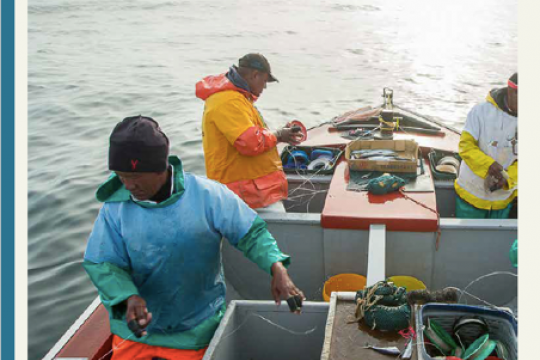CAPE TOWN: South Africa’s oceans and beaches boost the country’s economy by roughly 35 percent, in terms of the ‘goods and services’ they provide. This is highlighted in a report released recently by the local branch of the Worldwide Fund for Nature (WWF), which gives an overview of the economic value of South Africa’s marine environments.
Resource economist Dr Jane Turpie, director of the University of Cape Town (UCT) Environmental Policy Research Unit, contributed to the study.
The report, Ocean Facts and Figures: Valuing South Africa’s Ocean Economy, reviews the state of the country’s marine environment and fishing stocks. It also reminds of the important food security benefits associated with the country’s fisheries, which provide an affordable source of protein for many South Africans, who consume an estimated 6.25kg of seafood per person annually. Fisheries are also an important source of jobs and livelihoods for an estimated 100 000 South Africans, and contribute 0.5 percent to the country’s gross domestic product (GDP).
However the additional economic benefits associated with ocean and coastal goods and services are linked with ecosystem ‘services’. This includes services such as those offered by mangroves or healthy river mouths which reduce the impact of flooding or coastal inundation associated with storm surges. Ocean waters also help absorb carbon dioxide pollution associated with climate change, and marine environments also have an ‘amenity’ value in terms of their beauty and recreational opportunities which bring in tourism revenue.
Before writing the report, a WWF-hosted workshop brought together various experts, including marine scientists and economists, for a process which produced four scenarios looking at the possible state of fisheries by 2036, in the context of good or poor governance, and high or low economic growth.
Concluding the study, WWF states that the greatest threats to the marine environment here are unsustainable use and ineffective management. Addressing this will need ‘integrated planning’ which considers the ‘full range of interactions within an ecosystem’, rather than looking at individual uses, species, or ecosystem services.
Good and sustainable ocean management also calls for sound spatial spacial planning, for different sectors to work together, and for Marine Protected Areas which have been shown to be successful in promoting the health of marine systems, amongst others.
Download the WWF report here.
